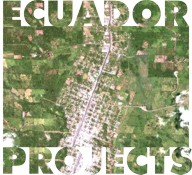Ethnography is the study and systematic recording of human cultures. The only ethnographic component to the CPC Ecuador projects is in the NIH-funded research in the indigenous areas of the Oriente. In 2001, ethnographers spent six months in 8 different indigenous communities recording a wealth of information on their culture and activities that could not have been documented in any other way. Since the completion of the ethnographic work, project personnel have been cleaning and processing the data. Click below for a detailed description of the ethnographic data. Unfortunately, the data are not yet ready for any distribution, nor are any analytical results ready.
Ethnographic Database Description
Details regarding factors such as demographics and agricultural production and resource use
Ethnographic Data Sets
Due to confidentiality requirements, the data sets are not available at this time.
CPC Occasional Paper
Based on a five-month intensive ethnographic study, this working paper describes demographic patterns, agricultural production and resource use, household economics, and socio-economic attitudes for eight study communities belonging to the Huaorani, Secoya, Shuar, Quichua and Cofán ethnic groups. We highlight the inter- and intra-ethnic diversity and cultural dynamism which exists among these groups, who, along with other Native Amazonian populations, are often perceived as homogeneous and static. Although these ethnic groups span the gamut in terms of factors such as population size, territorial base, and degree of market integration, they all face similar challenges such as land circumscription by alternative land users and uses (e.g., petroleum extraction), population growth, environmental degradation and greater use pressure on floral and faunal resources. Indigenous peoples throughout the Amazon and around the world are facing similar issues as they transition to an increasingly “globalized” and “modernized” society. Documenting this process of rapid cultural, demographic, ecological, and economic change is important precisely because of the dramatic pace of these changes, the shrinking window of opportunity to learn how things worked while some groups were still relatively subsistence-based.
